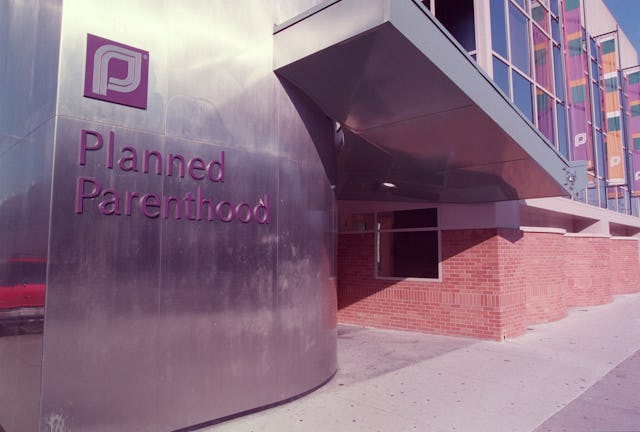Administration Withholds Title X Funding For Reproductive Healthcare In 22 States
The administration is asking affected grantees to provide lists of patients — including their races and immigration status — within 10 days.

On March 31, the Trump administration sent notice to family planning grantees across 22 states that as of April 1, the Department of Health and Human Services (HHS), “pending an evaluation of possible violations of their grant terms,” the federal government would be temporarily withholding $65.8 million in Title X funding. These funds help provide reproductive healthcare and cancer screenings for 870 facilities serving nearly 850,000 patients from Alaska to Maine.
Title X, which was implemented in1970 via a bipartisan bill, provides grants to public and nonprofit agencies for family planning services, research, and training. It is the only domestic federal program dedicated solely to family planning and related preventive health services, including screenings for breast and cervical cancer. Title X funds cannot be (and have never been) used to provide abortions. During Trump’s first presidency, facilities that referred patients to abortion providers could not receive funding, though that was reversed by President Biden.
In a letter from Amy Margolis, the deputy director of HHS’ Office of Population Affairs, obtained by Politico, the administration claimed Planned Parenthood mission statements and other documents “suggest it is engaged, across its affiliates, in widespread practices across hiring, operations, and patient treatment that unavoidably employ race in a negative manner.” In another instance, an open letter from Mississippi-based clinic Converge —recommitting to addressing systemic racism in the wake of the murders of George Floyd, Breonna Taylor and Ahmaud Arbery — was cited as a possible violation of the Civil Rights Act and anti-DEI initiatives.
Margolis also claimed the grantees may be in violation of a February 19 executive order by “overtly encourag[ing] illegal aliens to receive care,” which qualified as “taxpayer subsidization of open borders.”
Jessica Valenti of Abortion Every Day notes that the administration is asking affected grantees to provide lists of patients — including their races and immigration status — and any grievances brought against their assorted facilities, within 10 days.
“The goal appears to be asking already-overtaxed organizations for so much, it will be impossible to comply,” she writes.
This move renders eight states — California, Hawaii, Maine, Mississippi, Missouri, Montana, Tennessee, and Utah — without any healthcare facilities supported by Title X. Fifteen other states — Connecticut, Idaho, Indiana, Kentucky, Minnesota, New Hampshire, North Carolina, Ohio, Oklahoma, Pennsylvania, South Carolina, Texas, Virginia, and West Virginia — also stand to lose their funding as well. Planned Parenthood, which operates more than 600 clinics across the U.S., is the largest beneficiary of Title X. Nine of their affiliates, which serve clinics throughout aforementioned states, have been affected.
“We know what happens when health care providers cannot use Title X funding,” said Alexis McGill Johnson, president and CEO of Planned Parenthood Action Fund in a statement. “People across the country suffer, cancers go undetected, access to birth control is severely reduced, and the nation’s STI crisis worsens.”
Indeed, during Trump’s first presidency, more than 900 clinics were left without Title X funding after refusing to comply with changes to the terms of the grants, effectively cutting the reach of the program in half. These changes (which were ultimately reversed under the Biden administration) demanded facilities neither refer patients to abortion providers, nor perform abortions at the same facility as other services. In lieu of Title X funding going to healthcare providers, money was sent to faith-based “crisis pregnancy centers,” many of which did not promote safe sex measures like condoms or birth control pills.
As a result, 844,083 fewer clients — disproportionately minorities, teens, low-income and rural individuals, and the uninsured — weren’t able to access birth control, screenings for cancer and STIs, and other services.
“Planned Parenthood Action Fund will fight to get this funding restored and to keep politicians out of health care,” McGill Johnson vowed. “People need affordable health care options. This cannot stand.”